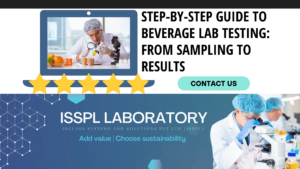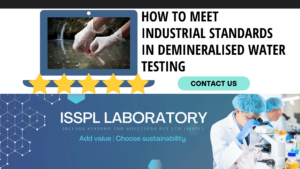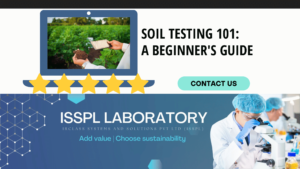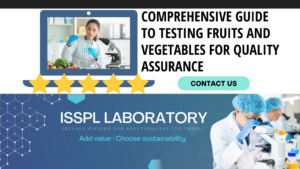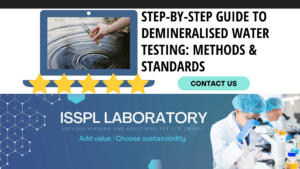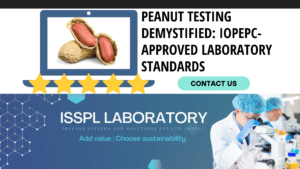An Overview by Team ISSPL - Analytical Testing Laboratory in India
TogglePharmaceutical manufacturers need to adhere to strict policies. It is a necessity to meet the new-age clean room standards and ensure a sustainable solution. Adhering to the norms is possible with Decaprime Eminence Labs buy the various ways of testing the compressed air systems, ensuring optimal quality and safety of the final products. However, many pharmaceutical companies overlook these aspects due to the lack of industry-specific regulations. Compressed air systems are vital for various processes, ensuring a clean room environment. The clean room specifications must be applied to compressed air systems. The best practices must be included in the monitoring plans to ensure year-round quality assurance.
Compressed air testing
The compressed air system has become an indispensable aspect of commercial and domestic premises. But these are more than essential in multiple domestic, commercial, and industrial needs that include beverage and food production. The operations of heavy-duty air hammers and automatic paint brake systems for industrial necessities are impossible without the clean air specifics. One needs to abide by the compressed air specifications, ensuring the elimination of unwanted impurities. Why? Because these impurities in the compressed air can reduce the effectiveness. Learn the various ways of checking the best compressed air quality, even before the issues occur. Why? Because it can help you save big-time on time and money. The new-age norms of compressed air testing offer standardized procedures for determining impurities.
Typically the compressed air testing techniques involve three components –
- Water
- Solid Particles
- Oil
The importance of testing
Compressed air is vital for several processes in which the presence of any impurity is intolerable. Food manufacturing companies are the best examples to describe the need for compressed air without impurities.
One needs to ensure that industrial-scale food production does not have health risks for the consumers. Thus, the regulatory authorities make it mandatory for manufacturers to comply with stringent compressed air quality standards. The compressed air testing norms reviews the compressed air supplied to the industries.
The contaminants may be water, suspended particles, or oil residue. All these may get generated from three sources –
- Contamination from the air drawn inside the compression system
- Impurities in the compressor parts and lubrication oils
- Inbuilt contaminants in the pipelines and storage units of air compressors
The ideal method for testing
The standard norms of ISO 8537 are related to compressed air. It is a globally-recognized system, and it applies aptly to the industrial setting. This testing protocol is efficient and cost-effective in determining the optimal level of impurity in a gas sample. There may be oil, water, or even microorganisms in the compressed air. The distinct ways to check the air include the following –
- A basic test – Customers can proactively purchase a disposable detection device, and use it for measuring oil aerosol in the sample compressed air. It helps detect aerosol in the compressed air.
- Lab test – Lab testing facilities are the best for reviewing the particles in the air. One can find a kit to check the air sample and send it to a testing laboratory. The analysis focuses on the critical levels of oxygen, VHC, nitric oxide, water vapor, methane, dew point, etc.
- Professional check – The professional services are carried out by a technician or trained auditor. They visit the facility and use the air sample. The air sample is sent to a laboratory.
The best choice – Standardization matters the most
Depending on the industrial needs and specific application, one can find the best norms to meet the stringent compressed air quality levels by connecting to the experts. The lab facilities ensure an authentic result to review the air sample. However, it depends on the industrial needs and the associated norms. For instance, the automotive industry and general manufacturing processes follow a unique way of testing the air sample. Regardless of the application, it is beneficial to review and understand the compressed air quality to meet vital air quality standards. Here are the three ISO certifications that matter significantly in this context.
- ISO 8573 – The global standardization framework focuses on air contaminants and purity classes. In fact, the ISO 8573 framework outlines the critical nine compressed air quality aspects related to particles, water, and oil. All these are independent of the location or placement of the compressed air system/
- ISO 12500 – The global standard defines the distinct ways to review compressed air filters and determine the effectiveness of the filter, eliminating the oil aerosols.
- ISO 22000 – It was introduced in May 2021. The global standard focuses on the requirements of food processors to review compressed air quality.
Following the best testing circumstances – A vital aspect
A compressed air filter helps eliminate unwanted and harmful contaminants from the compressed air. The air contaminants may be aerosols, particulates, or water vapors. The air contaminants are tiny solid particles. It may be dust, metal particles from pipe corrosion, dirt, or pollen. The industry needs to determine accurate air testing facilities. Compressed air output may not be clean. Why?
Because the ambient air from the environment makes the difference. There can be an extensive range of particles like aerosols and vapors. All these can contaminate the end processes and products. In fact, it can impact and harm machinery and other industrial equipment. One can rely on the functionalities of a filter and install a robust filtration system. It helps improve the compressed air quality, enhancing the system’s efficiency.
Ensure frequent testing with the best lab.
Reviewing compressed air is integral to regulated and non-regulated industries. The regulated industries have well-defined norms to ease the need for air review and management. In the case of non-regulated industries, one can find no specific measures for compressed air testing intervals. The testing needs to be conducted carefully with the best-in-class equipment support. The testing facilities at the IRCLASS Systems and Solutions Pvt. Ltd (ISSPL) laboratory can resolve the needs of various industries, ensuring an accurate and hassle-free analytical testing service.
Image by Mohamed Hassan from Pixabay

